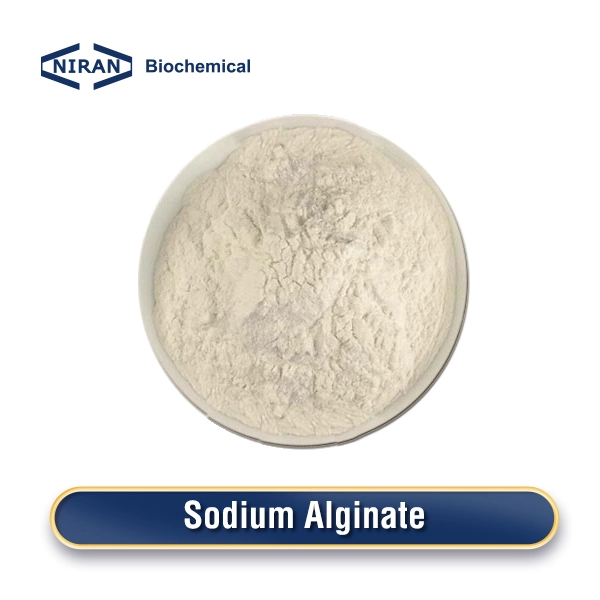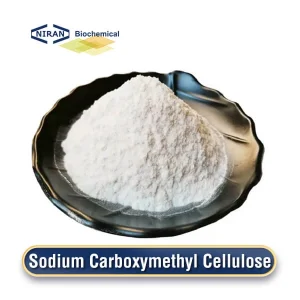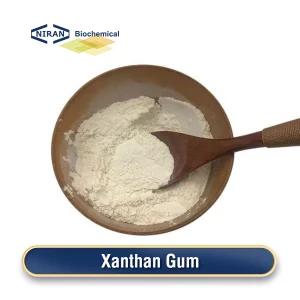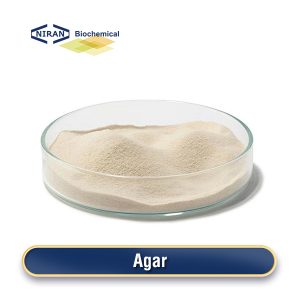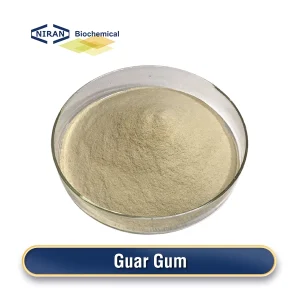What is Sodium Alginate?
A byproduct of removing mannitol and iodine from brown algae sargassum or kelp is sodium alginate. It looks like a light yellow powder, has virtually no taste or odor, and dissolves readily in water to create a thick liquid. It possesses the safety, viscosity, stability, and solubility needed as excipients in medicinal preparations. Both the food sector and the pharmaceutical industry have made extensive use of it.
A crude alginate solution known as sodium alginate is made by crushing dry or wet seaweed, or algae, rinsing it in water to get rid of any contaminants, extracting it with strong alkaline water, and then clarifying it. To create colored calcium alginate, it is precipitated with calcium chloride. Following the processes of decolorization and deodorization, soluble impurities are removed using acid to produce alginate precipitate, which subsequently combines with sodium carbonate to produce sodium alginate. The resulting powder is subsequently dried, crushed, and sieved.
Recommended dosage:
| Food name | Maximum usage(g/kg) |
| Ice cream | 3-8 g/kg |
| Yogurt | 2-5 g/kg |
| Jelly | 2-7 g/kg |
| Jam | 2-6 g/kg |
| Baked cakes | 1-5 g/kg |
| Sauce | 2-6 g/kg |
| Cheese | 2-6 g/kg |
| Soft candy | 3-10 g/kg |
| Condiments | 3-10 g/kg |
| Peanut butter | 2-5 g/kg |
| Cream | 1-3 g/kg |
| Biscuits | 3-7 g/kg |
| Salad dressing | 2-5 g/kg |
Sodium Alginate has a wide range of uses
1. Gelling agent and stabilizer: Sodium alginate is a natural polysaccharide with good gelling properties and stability. Food gelling and stabilization applications include its usage.
For example, when making jelly, pudding and jelly-like foods, sodium alginate can quickly solidify the liquid into a solid and maintain its shape and taste.
2. Emulsifier: Sodium alginate can help emulsify oil and water, improving the texture and taste of food. In products such as cheese, ice cream and sauces, it can stabilize the emulsion, prevent stratification and improve the taste.
3. Thickener: As a thickener, sodium alginate can increase the viscosity and thickness of food and improve the taste. Products like sauces, salad dressings, and thick soups benefit greatly from this.
4. Making films and wrapping agents: Sodium alginate can form a film that can be used to wrap the surface of food, such as in food packaging, juice beads and food supplements.
5. Preservative: Certain characteristics of sodium alginate can help preserve food’s freshness and quality while extending its shelf life, even though it’s not a major preservative.
User asked question:
Q: What are the alternatives to sodium alginate in food applications?
A: Sodium alginate is commonly used as a gelling agent, stabilizer and thickener in food applications, but there are also a variety of alternatives, such as agar, carrageenan, guar gum and xanthan gum, each of which has different gel properties, stability and application areas, and can be selected and applied according to specific food manufacturing needs.
Q: Will moderate intake of sodium alginate have an impact on physical health?
A: In most cases, it won’t significantly affect one’s physical health. As a natural food additive, sodium alginate is widely considered safe, and its intake in food is generally controlled within a safe range.
However, long-term excessive intake may cause digestive discomfort, so it is recommended to use it in normal eating habits and follow the recommended dosage of food additives.

